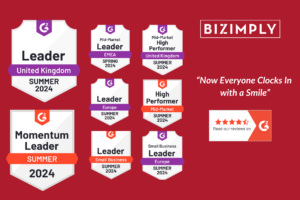Small changes that make a big difference
In our first article in this series we acknowledged that staff recruitment is a major headache running any kind of business and that in sectors such as hospitality and retail, there are particular challenges.
But let’s say you’ve finally got some great candidates through the door? In the second of our series on how attention to detail can make a big difference, let’s take a look at interviewing.
Interviewing is an art form in itself, but it is one you need to learn. You should always bear in mind that it is quite a stressful experience for the interviewees; this also means that the best candidate is not necessarily the one who comes across best at the first interview. For this reason, you may need to do a second round.
That said, it is also time-consuming for you. Before you definitively invite anyone to interview you should ask the candidate if they are eligible and available to work legally in the first place.
Ask them to bring proof (e.g. an EU passport, proof that they have a permanent place of residence, National Insurance number etc.). Otherwise it is a waste of time on both sides.
Start with some small talk to put candidates at their ease and let them do the talking. Resist the temptation to talk over them: show that you are a good listener and interested in them as individuals, not just as a means to an end. Thereafter, keep the interview to the point, relevant to the job. That will obviously include their experience if they have any. If not, the following questions are very relevant in the hospitality sector:
1. Why do you want to work in the food and beverage/hospitality industry?
2. What do you know about our company and/or brand?
3. What does “hospitality” mean to you?
4. Tell me about your most memorable service experience in a restaurant or bar (if the candidate does have experience, you can flip the question and ask them to give an example of how they gave great service and showed professionalism).
5. How would you respond if a customer made a complaint about you, which you know to be inaccurate, and they came back into the restaurant?
6. Tell me about a conflict you’ve had to deal with involving a colleague and how you handled it.
7. Can you give me an example of a very stressful work situation, and how you coped with it?
8. What would your referees say about your strengths and weaknesses?
9. If you get this job, how do you see yourself growing with this company.
10. What are your interests and hobbies? How do you spend your time when you are not working?
Note that there are no “correct” answers to these questions.
On the contrary, in fact. If a candidate robotically gives you a Wikipedia definition of “hospitality”, for example, that suggests a lack of personal engagement. But if they talk, in their own words, about being welcoming and helpful to customers/guests, that will give you a warm fuzzy feeling.
Or to put it another way, the “correct” answer is not so much what they say, but how they respond.
With questions 5 and 6, for example, the idea is to find out if they can put their ego to one side when appropriate or assert themselves in a way that makes the customer or colleague feel good.
The eighth question is expressed this way because it forces the candidate to think about themselves objectively, as others perceive them. By the way, it is a good idea to follow up on references. Compare what the referees say and what the candidate said. But be careful not to betray any confidences.
The last question is far from being merely a “filler”. It is vitally important in hospitality, especially in customer-facing roles. It will give you a feel for how well the candidate can interact and engage with guests. Once you have run through these questions, you will have a pretty good idea as to whether the candidate is the right fit for the job.
However, even if you decide not to hire, you should carry on with the interview. Why? Because rejected candidates share their experience, face-to-face and via social media. Make sure it is a positive one.
Moreover, you will sometimes reject candidates because they lack relevant skills (including so-called “soft skills”). But they might come back in the future having gained those skills, so take the opportunity to sell the company.
For the same reasons, it is also a good idea to communicate a rejection gently, stating any positives. If you do not communicate at all, or just send a peremptory standard email, it will certainly damage your reputation.
Explain the duties involved in the job, and ALWAYS ask if the candidate has any questions.In the next article we’ll look at the next stage in employee management: onboarding.









